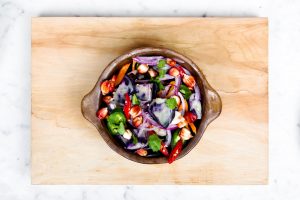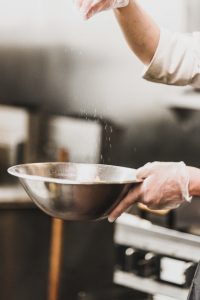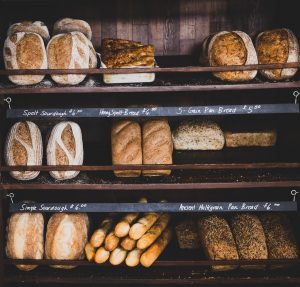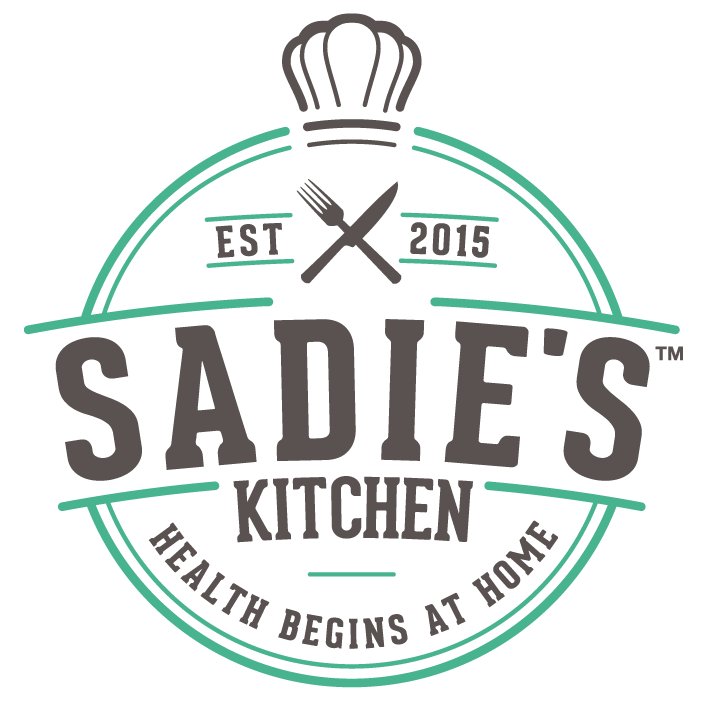As we all adjust to a new, temporary, normality as we work together to #FlattenTheCurve, we’ve become pros when it comes to social distancing. We know we have to come together, by staying apart. We know to wash our hands (properly, for 20 seconds) multiple times a day and to clean surfaces we repeatedly touch, frequently. But what about when it comes to preparing food? Here’s what we know so far.
Enjoy x

Can Covid-19 be passed on through food?
Experts say there’s currently no evidence of the coronavirus disease, COVID-19, being transmitted through food. According to the Food Safety Authority of Ireland, No reported cases of COVID-19 have been linked to contamination of food. The main risk of transmission is from close contact with infected people. The advice they give is to maintain good hygiene practices and to wash your hands regularly. Thorough cooking will kill the virus.
Why food is low risk
There are a couple of factors that could make the transmission of SARS-CoV-2 through food less likely, even if the virus is present on food or a food worker catches it. First, the food safety measures that are already in place to prevent foodborne illness — such as frequent hand-washing, cleaning of surfaces and utensils, and cooking food to the right temperature — would also reduce the transmission of any virus particles through food.
And remember the biology; the virus cannot survive for weeks at a time on surfaces —preliminary studies have found the new coronavirus may last a few hours to a few days on certain surfaces – And unlike bacteria, viruses cannot grow inside food, so the amount of virus in the food would be expected to dwindle with time, rather than grow.
Do I need to wear gloves while preparing food?

The general consensus is that perfectly acceptable to prepare and handle food with bare hands provided proper handwashing procedures are in place. You can use gloves, but the gloves must be changed frequently and hands washed between glove changes and when gloves are removed.
Gloves must also be changed after carrying out non-food related activities such as opening/closing doors by hand, emptying bins, handling money, and so on. This is because wearing gloves can allow bacteria to build upon the surface of the hands, so hand washing is extremely important when gloves are removed to avoid potential contamination of food. Remember, it is important to wash your hands even when wearing gloves, as contaminated gloves can spread germs to your hands when removing the gloves.
What about ‘open food’?
There is currently little scientific information about the survival of the COVID-19 (coronavirus) on the surface of open food. According to the Food Safety Authority of Ireland, work with similar viruses shows that some food surfaces don’t allow the virus to survive at all, but some do. The advice here is that it’s important to maintain good hygiene practices around open food (e.g. unpackaged bread, cakes, fruit.) and this will reduce the risk of contamination of the food.

Is there a risk with food products or ingredients which are imported from an affected country?
No, COVID-19 is not transmitted through food or ingredients. Even if surfaces or packaging have been contaminated, the virus will only survive on such surfaces for a short period, therefore there is no risk of contamination.
Essentially, prepare food to your heart’s content, but keep washing those hands!
